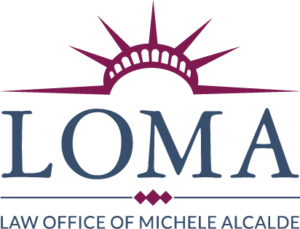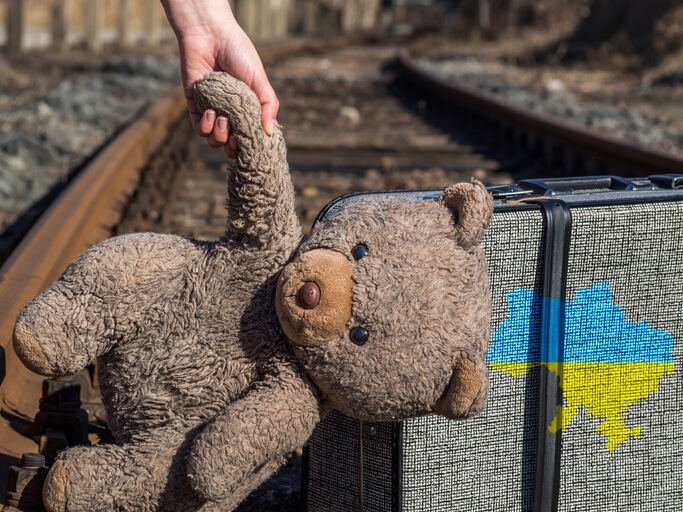The international adoption process varies depending on the State where the prospective parents reside, the adoption agency, and the country involved. The process of adopting a child from a different country carries specific procedures in New Jersey. Although the final result gives a loving home to many children and makes dreams come true for adoptive parents, the process is complex and carries some unique challenges. In addition to the specific legal requirements relating to family and immigration law, international adoptions can be expensive including international travel as part of the process.
New Jersey Laws on International Adoption
For the state to recognize an internationally adopted child as a New Jersey citizen, the child must meet these qualifications:
The child must have at least one adoptive parent who is a New Jersey citizen
The child must have a visa for legal immigration issued by the United States Citizenship and Immigration Services. This can be done by either filing the child’s green card, providing a copy of the I-551 stamp on the child’s foreign passport or supplying documentation of the child’s U.S. citizenship
A certified copy of the foreign birth certificate and a certified English translation
A certified copy of the foreign adoption decree and a certified English translation
A completed copy of Report of Adoption Form (REG-44)
Once the family of the child has provided evidence of these qualifications, the child’s birth certificate and the official copy of the judgment from the country of birth must be submitted to the State Register in order for the child to officially become a New Jersey citizen.
Carefully Research a Placement Agency
The first step in the international process is to identify an adoption or placement agency that will serve as a liaison between you and the adoption agency in the child’s home country working to place the child. Legally, to become a New Jersey adoptive parent, you must work with a New Jersey placement agency. Agencies in New Jersey do not have the authority to control adoption procedures in the country where your child was born. Their job is to match you with a child through a foreign agency. That agency must file the legal papers that are necessary to obtain custody of that child. If feasible, arrange for the adoption procedure to take place within that country, and obtain a passport and visa for the child so that he or she can enter the U.S. legally.
It is best to work with a foreign agency that is accredited or authorized to provide adoption services in connection with the Hague Convention. The Hague Convention on Protection of Children and Co-operation in Respect of Intercountry Adoption is an international agreement that sets forth rules and regulations governing the international adoption process treaty and provides some measure of protection for any dealings you may have with foreign adoption agencies.
The Home Study
Once you have chosen a placement agency, you’ll be responsible for completing a home study with a licensed New Jersey agency or social worker. The home study is your opportunity to share who you are as a person or family and paint a picture of the life you can give to a child. Do your research as some countries will only agree to adoption processes with home study agencies that have signed the Hague agreement.
Readoption Laws in New Jersey
Depending on how your international adoption was completed, you may be required to readopt your child in New Jersey to ensure that your child obtains United States citizenship. Courts in New Jersey will recognize the adoption of a child in a foreign court and issue a U.S. birth certificate upon request. However, there are reasons why it may be wise to readopt your child in a U.S. jurisdiction. Other states do require a readoption process before they will issue a birth certificate. Should you and your family move to a different state, or be confronted with issues like divorce, custody disputes, child support or the distribution of survivors’ benefits arise, readoption can alleviate some of the complications.
The Effects of the War on Ukraine on the U.S. Adoption Process
As the war on Ukraine nears the three-month mark, prospective adoptive parents from the U.S. are facing extreme hurdles and concerns about the plight of Ukrainian children. The Department of State has been flooded with inquiries from U.S. citizens wanting to open their homes to provide a temporary safe haven, to host, or to adopt Ukrainian children in need.
Adoption under any circumstances can be a painstakingly long and emotional process. Coupled with the tolls of war, prospective adoptive parents at any stage in the process are up against a myriad of international family and immigration law hurdles.
Currently, the Ukrainian government does not approve of temporary travel for any Ukrainian children to the United States
The United States and Ukraine have a long history of intercountry adoptions. Every year, hundreds of U.S. families open their hearts and homes to Ukrainian orphans in need of a permanent family. These adoptions occur with protections from U.S. and Ukrainian laws and regulations. Ultimately, Ukrainian authorities have jurisdiction over and responsibility for the safety of the orphans in their custody, including decisions about what is in their best interests. Since the war, the Ukrainian government has moved many children in its care to Poland and other European countries for their safety and needed medical treatment.
At this time, most of the children living in orphanages in Ukraine are not orphans. The majority have parents and families who have placed their children in orphanages for economic reasons or for help with special needs. During times of crisis, it can be extremely difficult to determine whether children in orphanages are truly eligible for adoption under U.S. laws. Families in crisis often make the difficult choice to send children on their own or in the care of non-family members until they can safely reunite. The separation may only be temporary, or other caregivers may be looking for them. In cases when a child’s parents have died, other relatives may wish to care for them. The Ukrainian government and many international organizations now have serious concerns about children being taken out of the region since this would hamper efforts to reunite them with their families once the crisis is over.
Can the “Uniting for Ukraine” program be used to bring Ukrainian orphans to the United States?
Upon arrival at a U.S. port of entry, a child who is not traveling with their parent or legal guardian is not eligible for parole under Uniting for Ukraine – a pathway for Ukrainian citizens and their immediate family members to come to the United States with a designated sponsor – and may be placed in the custody of the Department of Health and Human Services, as required by law under the Trafficking Victims Protection Reauthorization Act of 2008.
Family Adoption From Ukraine On Hold Amidst Russian Invasion
There are families in the U.S. in various stages of the Ukrainian adoption process. The State Department is keeping in regular communication with the Ukrainian government and has conveyed that U.S. families are concerned and interested in bringing children to the U.S. The State Department is working with the Government of Ukraine on behalf of families who have final adoption orders to obtain the required documents for the child’s immigrant visa processing. Reports have been received that some Ukrainian courts are holding hearings for cases with official referrals, but the Ukrainian government has not officially confirmed approval of these cases moving forward. The U.S. will continue to raise the commitment of adoptive families in completing adoption cases that are in process. However, in general, intercountry adoption cases in process are not expected to move forward in the near term. Throughout all communications, Ukrainian officials have clearly stated that they prefer the children to remain in close geographic proximity to Ukraine and will not authorize any temporary travel to the United States. The Ukrainian government retains the authority for decisions about the best interests of Ukrainian children in institutional care, even when the children have been evacuated to other countries.
In summary, on March 13, 2022, the Ukrainian Ministry of Social Policy issued a statement that adoption is not possible in Ukraine at this time. Families at any stage of the process, including those who have started, but not completed required court hearings, should consult with their accredited adoption service provider (ASP) to discuss the impact of the Ministry of Social Policy’s statement on their adoption plans.
The Law Office Of Michele Alcalde Can Help Families Deal with the Complex Legal Issues and Emotional Strain of International Adoption
International adoption can be a harrowing experience. Although the Ukrainian government has expressed concern about moving children out of Europe at this time, things can change very quickly. Prospective parents choosing international adoption – no matter what country – should seek guidance from their accredited adoption agency as well as an experienced attorney who understands the intersection of immigration and family law. Michele Alcalde can help NJ families who are considering international adoption through the process with empathy and sensitivity. She will stop at nothing short of putting herself in your shoes. Find us on our social media accounts or call us at 732.766.1407.
Posted in: Immigration


